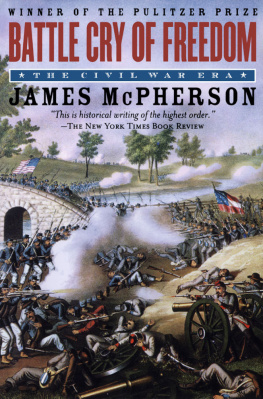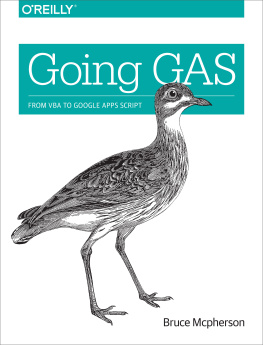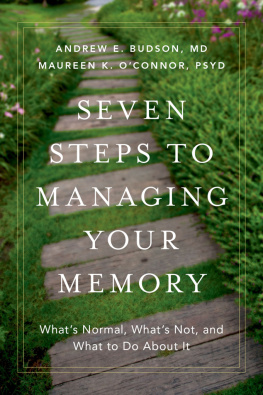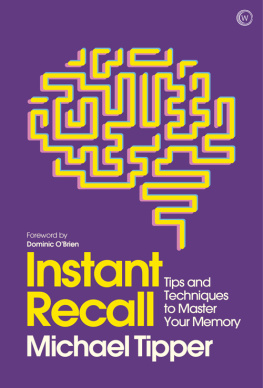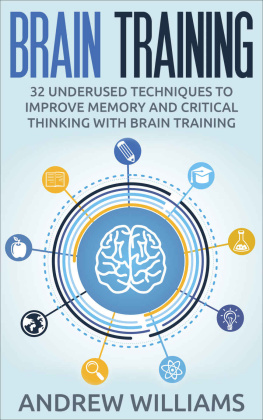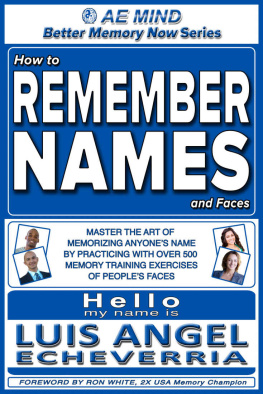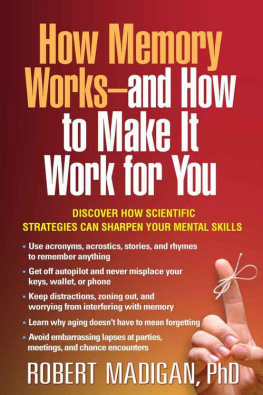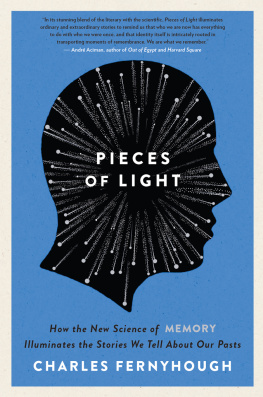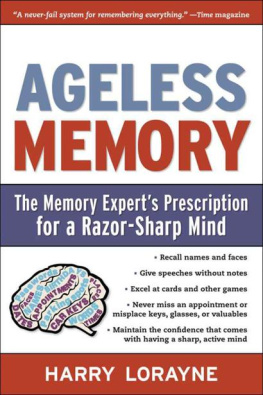McPherson - Perfect Memory Training: All you need to get it right every time
Here you can read online McPherson - Perfect Memory Training: All you need to get it right every time full text of the book (entire story) in english for free. Download pdf and epub, get meaning, cover and reviews about this ebook. City: London, year: 2009, publisher: Random House, genre: Religion. Description of the work, (preface) as well as reviews are available. Best literature library LitArk.com created for fans of good reading and offers a wide selection of genres:
Romance novel
Science fiction
Adventure
Detective
Science
History
Home and family
Prose
Art
Politics
Computer
Non-fiction
Religion
Business
Children
Humor
Choose a favorite category and find really read worthwhile books. Enjoy immersion in the world of imagination, feel the emotions of the characters or learn something new for yourself, make an fascinating discovery.
Perfect Memory Training: All you need to get it right every time: summary, description and annotation
We offer to read an annotation, description, summary or preface (depends on what the author of the book "Perfect Memory Training: All you need to get it right every time" wrote himself). If you haven't found the necessary information about the book — write in the comments, we will try to find it.
Perfect Memory Training: All you need to get it right every time — read online for free the complete book (whole text) full work
Below is the text of the book, divided by pages. System saving the place of the last page read, allows you to conveniently read the book "Perfect Memory Training: All you need to get it right every time" online for free, without having to search again every time where you left off. Put a bookmark, and you can go to the page where you finished reading at any time.
Font size:
Interval:
Bookmark:

Memory Training
Fiona McPherson

This eBook is copyright material and must not be copied, reproduced, transferred, distributed, leased, licensed or publicly performed or used in any way except as specifically permitted in writing by the publishers, as allowed under the terms and conditions under which it was purchased or as strictly permitted by applicable copyright law. Any unauthorised distribution or use of this text may be a direct infringement of the authors and publishers rights and those responsible may be liable in law accordingly.
Version 1.0
Epub ISBN 9781409061069
www.randomhouse.co.uk
Published by Random House Books 2009
2 4 6 8 10 9 7 5 3 1
Copyright Fiona McPherson 2009
Fiona McPherson has asserted her right under the Copyright, Designs and Patents Act, 1988, to be identified as the author of this work
This book is sold subject to the condition that it shall not, by way of trade or otherwise, be lent, resold, hired out, or otherwise circulated without the publishers prior consent in any form of binding or cover other than that in which it is published and without a similar condition, including this condition, being imposed on the subsequent purchaser.
First published in Great Britain in 2009 by Random House Books Random House, 20 Vauxhall Bridge Road, London SW1V 2SA
www.rbooks.co.uk
Addresses for companies within The Random House Group Limited can be found at: www.randomhouse.co.uk/offices.htm
The Random House Group Limited Reg. No. 954009
A CIP catalogue record for this book is available from the British Library
ISBN 9781847945365
The Random House Group Limited supports The Forest Stewardship Council (FSC), the leading international forest certification organisation. All our titles that are printed on Greenpeace approved FSC certified paper carry the FSC logo. Our paper procurement policy can be found at www.rbooks.co.uk/environment

Typeset in Minion by Palimpsest Book Production Limited, Grangemouth, Stirlingshire Printed and bound in Great Britain by CPI Bookmarque, Croydon, Surrey CR0 4YY
Perfect Memory Training
Dr Fiona McPherson has a PhD in psychology, and has spent many years researching how to improve human memory. She lives in Wellington, New Zealand, where she runs a small research company with her partner, and publishes an e-zine about memory.
Other titles in the Perfect series
Perfect Answers to Interview Questions Max Eggert
Perfect Babies Names Rosalind Fergusson
Perfect Brain Training Philip Carter
Perfect Best Man George Davidson
Perfect Calorie Counting Kate Santon
Perfect Confidence Jan Ferguson
Perfect CV Max Eggert
Perfect Detox Gill Paul
Perfect Family Quiz David Pickering
Perfect Letters and Emails for All Occasions George Davidson
Perfect Numerical Test Results Joanna Moutafi and Ian Newcombe
Perfect Numerical and Logical Test Results Joanna Moutafi and Marianna Moutafi
Perfect Party Games Stephen Curtis
Perfect Personality Profiles Helen Baron
Perfect Persuasion Richard Storey
Perfect Positive Thinking Lynn Williams
Perfect Presentations Andrew Leigh and Michael Maynard
Perfect Psychometric Test Results Joanna Moutafi and Ian Newcombe
Perfect Pub Quiz David Pickering
Perfect Punctuation Stephen Curtis
Perfect Readings for Weddings Jonathan Law
Perfect Relaxation Elaine van der Zeil
Perfect Speeches for All Occasions Matt Shinn
Perfect Wedding Planning Cherry Chappell
Perfect Wedding Speeches and Toasts George Davidson
Perfect Weight Loss Kate Santon
Perfect Written English Chris West
I started thinking about memory from a practical rather than academic standpoint when lack of sleep and complete distraction started attacking my ability to think and remember. Having just completed a doctorate in cognitive psychology (the branch of psychology devoted to memory and how we think), it was with considerable surprise that I realised I knew nothing that helped me improve a failing memory. So I began to look at some less academic books that claimed to help improve memory.
What really struck me was that most books spouted the same few bits of advice which went back decades to the early days of experimental psychology, and even further back to the days of ancient Greece. Good advice in its time, but cognitive psychology has come a long way since then. So I looked, and I found that, indeed, there was some very useful, practical advice that hadnt made it out into the world. One finding in particular really stayed with me: that most memory improvement programmes dont have any permanent effect.
Why not? Why do people who try to improve their memory fail to do so? Not because they are unintelligent or lazy, but because the memory improvement programmes are flawed. They are based on effective strategies and valid principles, but they dont work because they have put in the too-hard basket the information that you need to know to improve your memory. You need to understand the context of what youre learning so that you know how and why the memory-improvement strategies work. Research suggests that whether you habitually and appropriately use effective memory strategies and thats what permanent memory improvement is all about depends far more on how much you know about your own memory processes than on how smart you are.
The first half of this book aims to fill this gap, by explaining the principles of memory, and the second half puts this knowledge into practice by explaining some strategies to improve your memory.
One of the reasons behind the failure of most memory improvement programmes to achieve long-lasting improvement is that memory is really a category, like sport. Would you say, I want to improve my sport? Of course not. But you might say, I want to improve my tennis (or golf or swimming ).
Memory is not one thing. The feats of memory that so impress us are not evidence of a photographic memory or any other innate talent. Being able to memorise a string of 80 digits after seeing them once is a trick anyone can learn if they wish to devote months of training and practising to the skill.
But the trick does not generalise to other types of memory. The person who sweats for months to master longer and longer strings of digits will be no better at remembering shopping lists. Chess experts take years to develop their phenomenal memory for the arrangement of chess pieces, but that doesnt make them any better at remembering a speech or what they did last Tuesday.
Surveys have found that there are over 100 memory tasks in everyday life that can cause people problems. Each of these tasks requires a different strategy.
Dont panic! One hundred sounds a lot but think for a moment how many different techniques you have for simply getting through the day. Putting on your shoes is a different technique than putting on a shirt; making breakfast is an entirely different skill to cleaning your teeth. You probably use 100 different skills before youve gone out the door!
Moreover, youre not starting from scratch. You already know many memory skills, and youre probably quite happy with your level of competence at some of them. What it comes down to is identifying your needs. Dont say, I want to improve my memory; say, I want to improve these specific memory skills.
Font size:
Interval:
Bookmark:
Similar books «Perfect Memory Training: All you need to get it right every time»
Look at similar books to Perfect Memory Training: All you need to get it right every time. We have selected literature similar in name and meaning in the hope of providing readers with more options to find new, interesting, not yet read works.
Discussion, reviews of the book Perfect Memory Training: All you need to get it right every time and just readers' own opinions. Leave your comments, write what you think about the work, its meaning or the main characters. Specify what exactly you liked and what you didn't like, and why you think so.


